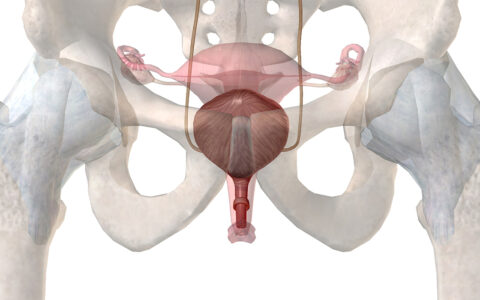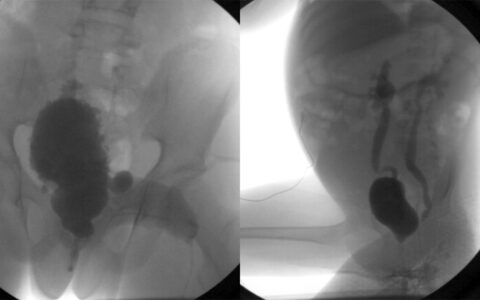Almost ten percent of blunt trauma cases, like motor vehicle crashes and bicycle wrecks, result in pelvic injury. Pelvic trauma injuries require not only the immediate treatment of acute pelvic fracture urethral injuries (PFUI) but also long-term management of subsequent sexual and urinary dysfunction.
“Once people recover from their acute injury, quality of life issues matter,” said Niels Johnsen, M.D., assistant professor in the Department of Urology at Vanderbilt University Medical Center. “How do we maximize and improve quality of life for patients after major pelvic trauma?”
Johnsen is an expert on complex male reconstructive problems. His research focuses on what providers and health systems can do to improve the experience of patients following pelvic trauma injury.
Urogenital Reconstruction
One complication that can develop after traumatic pelvic injuries is urethral strictures, or the narrowing of the urethra due to scarring. Urethral strictures can be successfully treated with various reconstructive techniques, including buccal mucosa graft urethroplasty. Johnsen is a specialist in the use of advanced grafting techniques for urethral stricture reconstruction – including harvesting cheek, lip, tongue and skin grafts, as well as rectal mucosa.
Johnsen also applies novel surgical techniques using different types of muscle flaps to reconstruct pelvic problems, reinforce repairs for urethral strictures or to repair rectal-urethral fistulas.
“We’ve had great success using techniques that bring healthy tissue into areas that have already experienced significant damage in order to recreate a functional urinary tract. Many of these patients have had multiple prior attempts at repair and we are able to finally help them for the long-term,” Johnsen said.

Improving Sexual Health After Injury
Even in the absence of obvious bladder or urethral injuries, it is common for men who have an injury to the pelvis to develop sexual or urinary health issues due to damage to surrounding nerves or blood vessels. For a small number of men, these sexual health issues improve without intervention over the first year after injury. However, after that first year, this becomes exceedingly rare.
Unfortunately, Johnsen has found that these sexual health concerns are often not addressed after injury. In an ongoing study of men’s experiences addressing sexual health concerns following traumatic pelvic injuries, Johnsen found that only about 20 percent of men reported a post-injury discussion about their sexual health with a healthcare provider. Of those discussions, 80 percent were initiated by the patient and not the provider.
“Men who have had a significantly impacted quality of life from traumatic injuries may feel abandoned, and they don’t know who to talk to about it.”
“Men who have had a significantly impacted quality of life from traumatic injuries may feel abandoned, and they don’t know who to talk to about it,” Johnsen said. “Better communication with patients about sexual health issues, similar to what is done in the survivorship care pathways for prostate cancer, is one important way we can improve the post-injury experience and quality of life.”
Facilitating Interdisciplinary Communication
Johnsen also researches communication and interdisciplinary interactions in the management of patients with traumatic pelvic injuries. He recently investigated how to improve communication between orthopaedics, trauma surgery and urology when treating polytrauma patients with urologic injuries.
His research revealed discordance between urologists and orthopaedists concerning optimal management of PFUI, with significant disagreement regarding the infectious risks of suprapubic tubes for urethral injury management. “This can be improved by better data, but also better interdisciplinary dialogue, so that we can discuss our concerns, our beliefs, and figure out ways to improve the care that we provide to trauma patients,” Johnsen explained.
“Good trauma care requires interdisciplinary care and communication,” Johnsen said. “My hope is that Vanderbilt can continue to grow as a model for managing these difficult reconstructive cases requiring very specific skills.”





